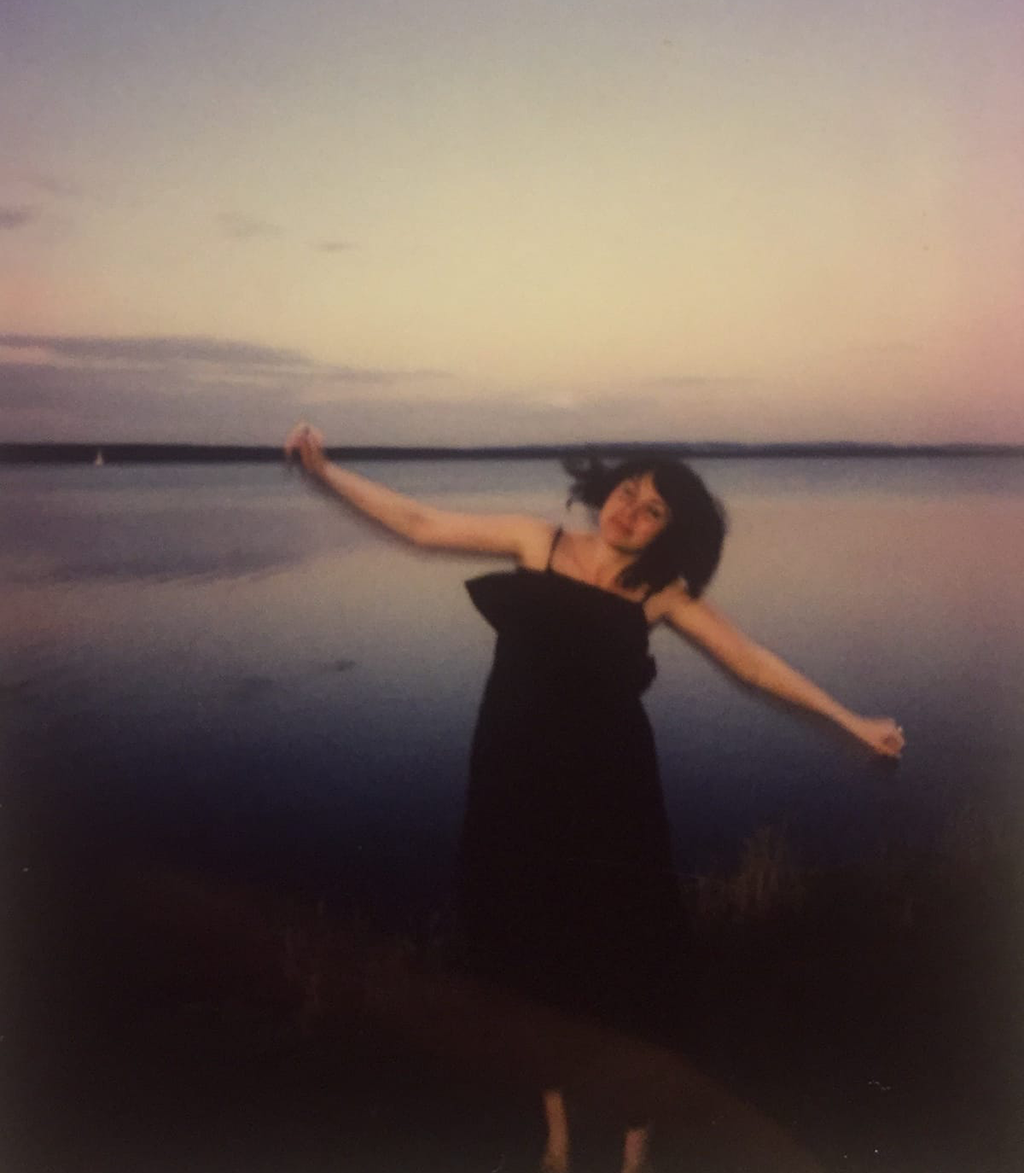The Final Girls Berlin Film Festival (FGBFF) always finds speakers who are not only smart as hell, but lovely and kind. Australian-born, New York-based writer and academic Kate Robertson is no exception. Before our conversation, I knew her primarily from an essay she had written in The Atlantic about the cultural fascination with female cannibals. I've long been interested in the way that horror uses taboo concepts — like cannibalism, filicide, and menstruation — to explore gender constructs, so this article certainly piqued my interest.
At this year's FGBFF, which took place earlier this month, Robertson gave a talk entitled, "Girls Gone Wild: Autonomy, Sexuality and Resistance in Representations of Young Women in Horror Films." In it, she "explores women-led horror films featuring young women who take active roles in their stories, maintaining control of their bodies, choices and lives." Anyone interested in the relationship between feminism and horror will find it fascinating. Although it isn't readily available online, you can request a recording from the festival team.
In this condensed and edited conversation (which took place before the festival), I talk to Robertson about how much it sucks to be a teen girl, why women enjoy horror, and Claire Denis' criminally underrated "Trouble Every Day" (2001). She is a gem, her writing is wonderful, and everyone should keep an eye out for her future projects and lectures. I could seriously listen to her talk about horror audience demographics all damn day.
Interview with Kate Robertson
Woman in Revolt: Tell me about your academic background.
Kate Robertson: I did my Ph.D. in art history in Sydney [Australia] and taught for quite a few years on art and film, mainly introductory level classes, so I got to do a big spread of topics. I started doing some separate work at the time for local publications and branching out into more accessible writing because I wanted audiences to actually read what I was writing. Academic writing doesn't exactly have a particularly wide audience.
I'm glad you branched out because I don't think I would have found you if not for your article in The Atlantic on female cannibals. Was there a film or work of art that initially got you interested in that topic?
Yes, absolutely. It's quite unusual, but it sort of pulls together my doctoral work with film work. I guess it's the linchpin, now that I look back at what happened to my life. I was writing my doctoral thesis and working on this huge nineteenth century oil painting by John Longstaff, which was inspired by the myth of the Sirens. I was reading some of the actual source material, the classics, which I had done a little bit of in school but wasn't that familiar with. I started thinking about why they were understood to be mermaids in popular culture and not as their original description, which was part bird. It's very different from what shows up in TV shows and movies. I wanted to figure out what these creatures meant and how they fit into this schema of representations of women. They're these beautiful creatures but lure men to their deaths and then eat them and they're all over the place ... in movies, comics, other art works, advertisements.
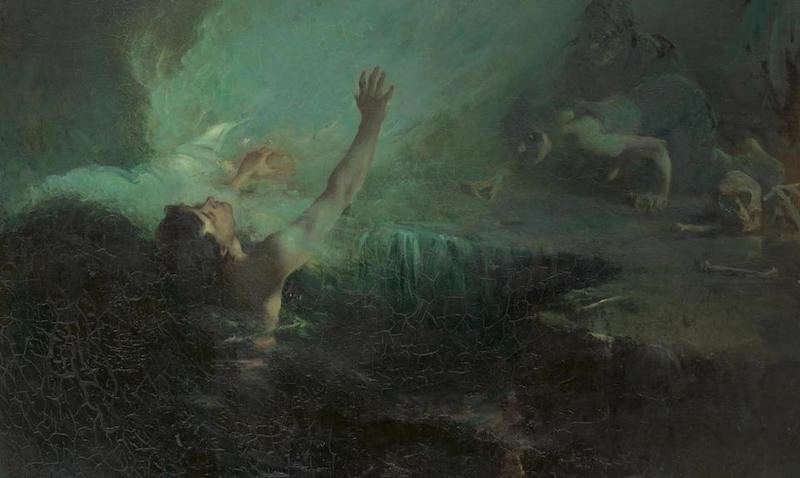
My friend, Georgina, and I were getting to the end of our projects and honestly, a little bit bored. You work on these ideas for so many years, and we decided that we needed a little break. We came upon this idea of proposing a panel to this very prestigious Australian art conference that we went to every year so that we could talk about something else that was more current and a little bit weird. She came up with this brilliant paper and I gave one called "Ladies who lunch." I later turned it into an academic article and when it was accepted to a journal I realized... Okay, so I'm not the only one who finds this idea appealing.
It's an incredibly cool idea. Your talk at FGBFF is focused more on young women in horror, right? Is there any overlap with the work on female cannibals?
Final Girls is pretty separate. There will be a little crossover with some of the characters, like from "Jennifer's Body" (Kusama, 2009), "Raw" (Ducournau, 2016), "The Lure" (Smoczynska, 2015), and probably a few others. This talk focuses solely on women-led horror films since that's what Final Girls is looking at. It does limit the filmography, which is good in some ways, but there is a lot less to talk about. There are films that would fit into this theme, like "The Witch" (Eggers, 2015), but it's not written or directed by a woman, so it didn't make the cut.
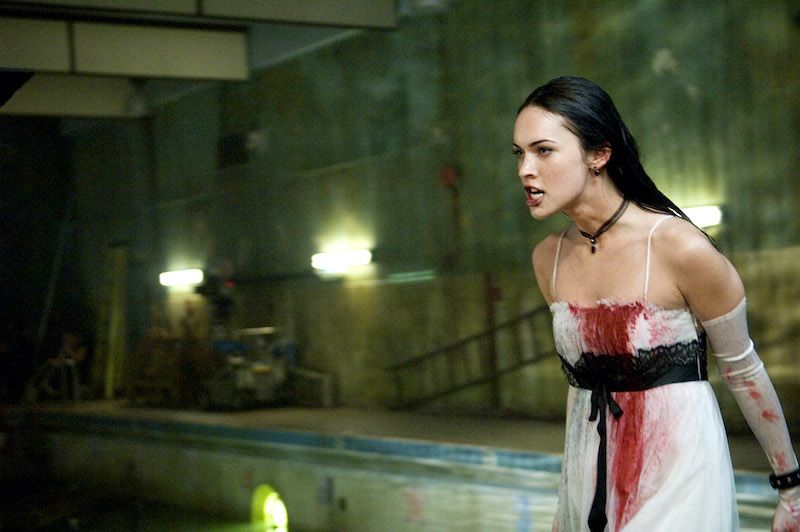
I can see how that adherence would be limiting, especially when you're trying to hone in on a specific area.
It's kind of an amazing feeling to know that I just can't look at every film I want to, though. Originally, I was going to include a couple of final girls and some rape-revenge, but I felt like it didn't really fit.
I love when someone else gives me limitations because I'm bad at setting them for myself.
That's also part of the reason why I decided to look at young women, mainly teens, or very early adulthood. It's a pretty ideal topic for horror, if you think about it. Watching all of these movies has really thrown me back into my teen years and made me feel fifteen again... where everything is awful, you hate and love everybody simultaneously, and you're just so angry. There's such desperation to be an adult, but you also want to be a kid. It's sort of horrible and wonderful at the same time. It's been weird experiencing that again through some of these films.
I can't even think back on my teen years. There's too much secondhand embarrassment. All of those heightened emotions come rushing back as soon as I get into that mindset.
What I've realized now is that some of the feelings were really misunderstood and kind of warranted, which a lot of these films show, as well. Teenage girls might be called hysterical, reckless, deceptive, manipulative... and honestly, some of them are, but young women experience a lot of bad things and many people don't take them seriously. And people do mistreat them in many ways. And teenage girls mistreat each other. They can be awful! I know this isn't exclusively gendered — a lot of it is coming from me personally or anecdotally from friends and family. I now have friends who are raising teenage girls and just... the things they deal with!
A lot of the girls in these movies are around fifteen to eighteen, and people expect them to be adults, to be independent and have control over things in their lives, but then they don't actually give any control. It's all of the responsibility and none of the payoff. As a teenager, it felt so unfair sometimes.
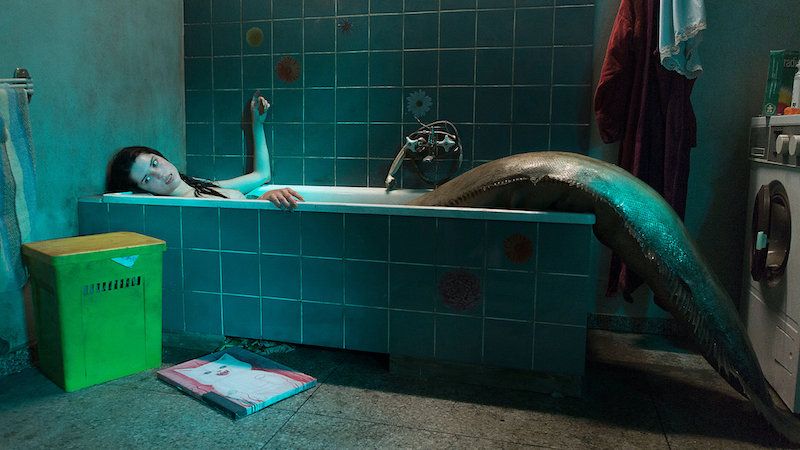
You're also experiencing a lot of things for the first time, so you don't know how to even identify certain feelings, let alone handle them well. There should be more films about how horrifying it is to be a teenage girl.
You're really not equipped for some of these things. You might have great friends who offer their support, but from what basis? Where is their knowledge coming from? Everyone is working it out as they go and trying to look after each other. It's all about trying to find some power or autonomy in a world that really doesn't want to give you any.
When we were emailing earlier, I mentioned Gita Jackson's essay about how horror is one of the few places where women see their fears being taken seriously. Do you have any theories about why women are so drawn to horror?
There are some scholars, including Brigid Cherry, who in the late '90s started doing some great research into women who enjoy horror. Cherry is one of the first people I found who actually started interviewing them and trying to fill the gap. Women have always watched horror, though. In the '30s, when there was the big golden age cinema horror boom, women were a really important demographic. On a practical level, women attended matinees, when men were at work. When horror came out, one of the things they would do is highlight the romance aspects of the films. So, "Dracula" (Browning and Freund, 1931), I kid you not, was pitched as the strangest love story of all and opened on Valentine's Day.
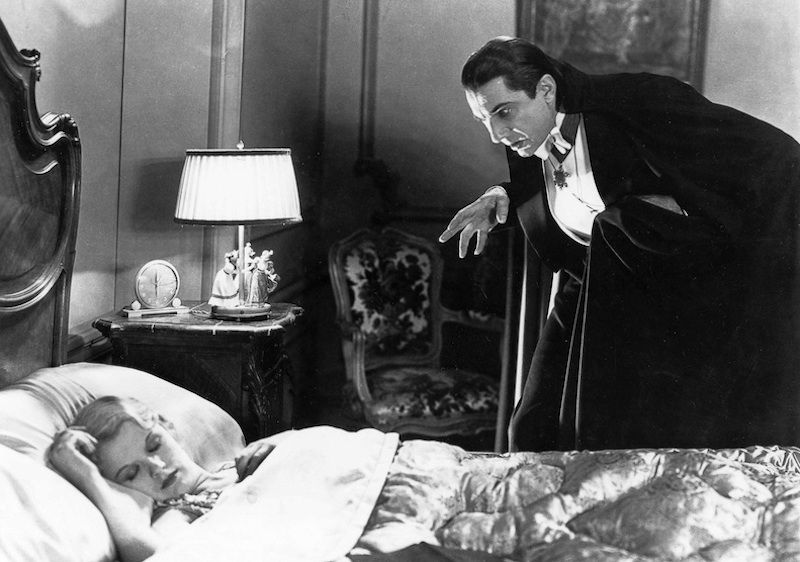
Marketers understood that they needed to appeal to women, although they didn't necessarily go about it how people would today. I've read a little bit on some of the promotional materials that used to come out for films like "Mystery of the Wax Museum" (Curtiz, 1933), which I've just written about in a book chapter that's coming out next year. One of the things they proposed was a tie-in with a local department store, so definitely a women's domain, where a live model would pose frozen among the figures in the store before coming alive and surprising the audience by smiling and bowing. It sounds very kitsch today, but at the time ... like this was years before something like "The Tingler" (Castle, 1959).
This sort of gimmick was really big in the '30s. There were films that they used to have an ambulance parked outside for or things like the ability to take out a life insurance policy before going to see a certain film. When a bell rang, audiences were encouraged to close their eyes. It's not unusual, but I found some of the strategies directed towards women particularly interesting. That's a roundabout way of agreeing that women have always watched horror but that I don't know why. I don't think that "Dracula" appealed to women because of the romance, honestly. It might have been what got some of them into the cinema, but I don't think that was it. The article you sent was interesting because it's good to have someone affirm that the fears women experience on a daily basis are real.
I think some people like the catharsis of it. There are certain genres that women tend to find particularly horrifying, like films set in haunted houses. The home is a place where women spend a lot of time and have been historically relegated to in the cultural imagination. For many women viewers, the danger is inside the house whereas for many men, it's outside... it's in the countryside, like in "The Texas Chainsaw Massacre" (Hooper, 1974). It's about looking out instead of looking in.
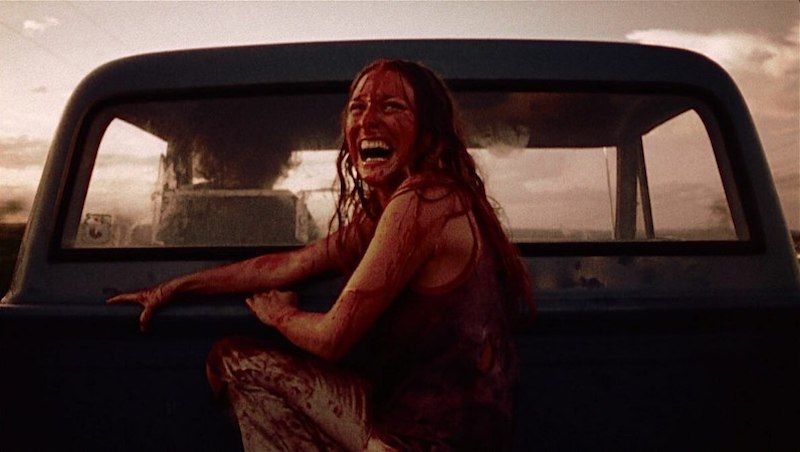
It's so interesting to me that in the '30s, marketers were recognizing women as an important demographic but that in the case of more recent films, like "Jennifer's Body," they were completely ignored. Do you have any explanation for that discrepancy?
They really messed up the marketing for "Jennifer's Body." I've read a few takes on what happened from people involved in the making of the film. It seems like everyone knows that it was mishandled and unfortunately, the film didn't get the love that it should have during its release. At this point, it has been pretty well-established as a great film. It was totally not what I expected when I first watched it. I have been convincing people to watch this film for a really long time. People are never really quite sure of what it is and what it means, but it definitely didn't match up with the marketing, which is super unfair because it was made by a team of women!
I think some of it comes down to who makes these choices about how films are marketed, edited, when reshoots are done without the original directors, when and how rewrites happen. If it's an independent film, the makers have more control, but if it's a studio film, the studio has a lot of sway. And of course, most studios are run by men.
There are these amazing reports that come out every year [from the Annenberg Inclusion Initiative] on women in the film industry. It's interesting to look at the numbers on how many women are working in different positions or sitting on boards. Very few fit into the media landscape. That definitely has to play a part.
I know you have a book coming out soon on "Trouble Every Day," so I feel like we have to at least touch on it. I just saw the film a few years ago and was blown away. Like "Jennifer's Body," it was totally panned by critics upon its release. Even now, it only has a 50% critics score on Rotten Tomatoes. What's the deal with that?
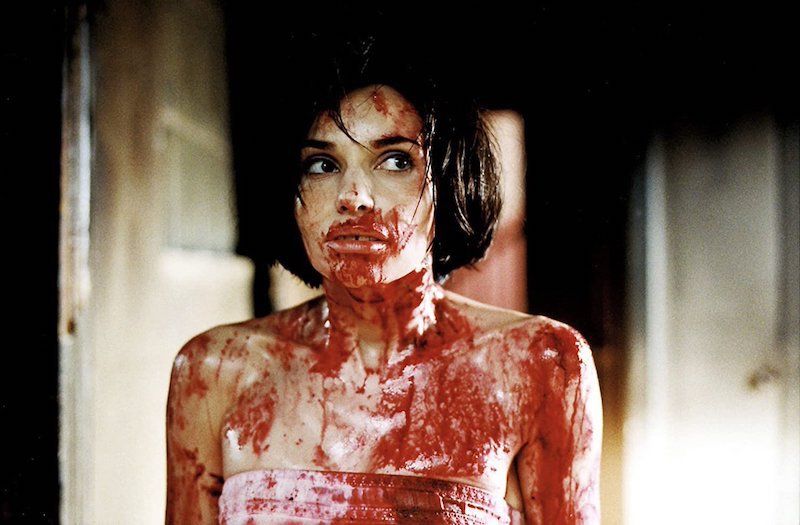
I have a whole section on this in the book. I'll give you a short answer. I think there was a lot going on at the time. One of the things was ... it was Denis' follow up to "Beau Travail" (1999), which was just this incredible film that put her in the spotlight. I think expectations were really high. One of the biggest issues is that it crosses genres, moving between art house, horror, drama, and sci-fi in a way that ended up alienating some of the audience. The established audience, who was expecting a really beautiful art movie, found the violence distasteful, but then people who went to watch it as a horror film were super frustrated by the lack of gore and slow narrative. It's very restrained and subtle ... all the violence, which is horrendous, is held back until the end. The whole way it was framed just didn't work well for a lot of the people who watched it.
I think it's starting to get a little more love now, but it definitely hasn't experienced a "Jennifer's Body" style renaissance yet. Maybe the genre crossover is just too difficult to ever be accepted in the mainstream.
A lot of her films are like that. "High Life" (2018), for instance, was very polarizing. The people who liked it loved it but it also left many people cold.
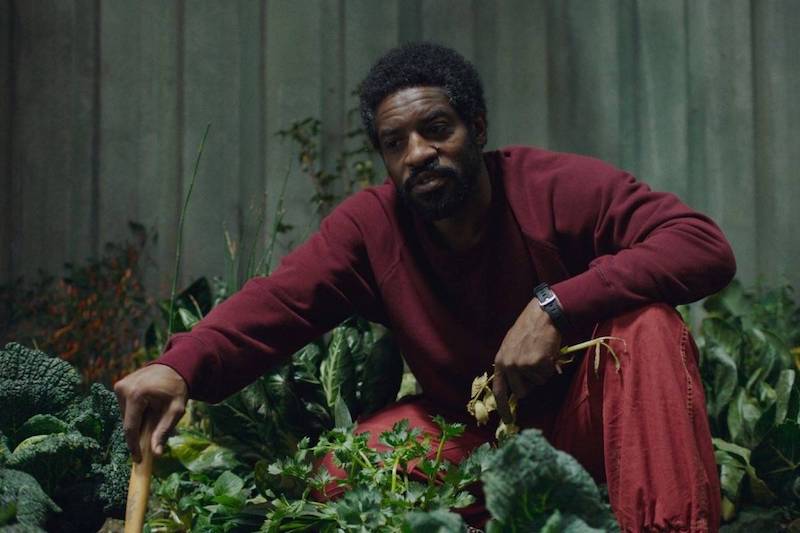
I like Denis so much mainly because she's not an easy director to pin down. She's always trying new things, never stagnating.
She's very confident in the way she takes on not just genres, but ideas and narratives. A lot of her films are hard to watch and cover a lot of things. It's not just "Trouble Every Day," either. "Beau Travail" deals with some horrendous material. She makes films that people think about for years and years.
Her films always demand a second viewing, but it's hard to convince yourself to re-watch because the experience is so uncomfortable. Knowing what to expect somehow makes it worse.
It's always something that I'm really careful about when I mention that I've written this book. People want to watch the film and I feel like I have to give them a warning because it's pretty hard. I struggled the first time I watched that locker room scene [involving sexual violence]. I still don't have words. I never want to watch it again! It's a film where I don't think you have to worry at all about spoilers. It's way more important for people to be prepared for what they're about to see.
This is an unpopular opinion, but I've never cared that much about spoilers, especially with horror. I can't think of a single time that knowing the plot beforehand ruined the viewing experience for me. And for films like this, I don't think someone is losing anything if they look up the plot summary and read it before deciding to watch.
I've given that exact advice to friends in regards to this film. And for some, I've said, "I don't think this is for you." There are some films that just aren't right for certain people.
But at the same time, that [locker room] scene obviously has a purpose. That's part of what convinced me to write on "Trouble Every Day" as opposed to doing a different book I was considering at the same time. When I was trying to decide, I was talking it over with someone and telling them that the film is so challenging, complex, and that there are scenes that I never want to watch again but can't stop thinking about. They were like, "Well, isn't that the point? Doesn't that make it an interesting film?" It's difficult to talk about, but feels worthy of a book.
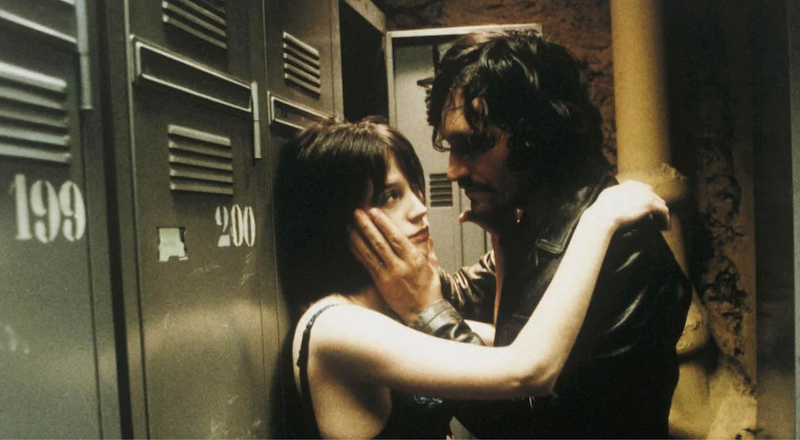
Before I let you get back to the fun of quarantining in NYC, are there any films you've seen recently and want to recommend?
I thought "Relic" (James, 2020) was spectacular. I cried, which feels unusual for a horror film, but I know that I'm not the only one who's had that response. I also really liked "Sputnik" (Abramenko, 2020), an odd sci-fi film that came out recently. "Saint Maud" (Glass, 2019)... I'll never be quiet about that one. There's also a new film that premiered at Sundance and is going to be a classic, I reckon. It's "We're All Going to the World's Fair" (Schoenbrun, 2022). Another film that comes up in my talk is "The Other Lamb" (Szumowska, 2019). I enjoyed it way more than I thought I would ... it wasn't what I was expecting. This is really hard to find a copy of, but "The Long Walk" (2019) by Mattie Do is fantastic. I wrote an article on it for a film magazine recently and I was just blown away. Another good sci-fi horror film is "Sea Fever" (Hardiman, 2019). I could probably sit here for ten minutes and just rattle off a long list.
One thing I love doing is going through film festival programs and putting everything into a list with the hopes that someday there will be a release. That's a good way to find some of those gems that might slip through the cracks.

